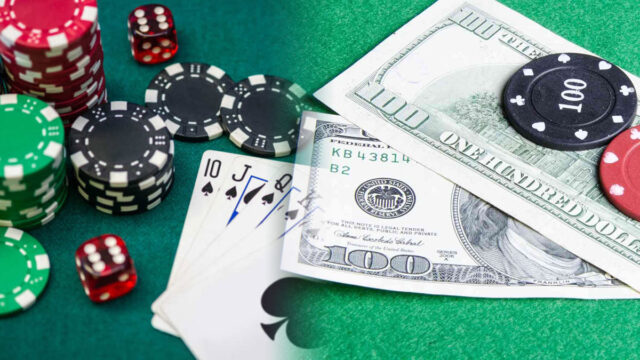
Casinos and gambling have long been associated with luck and chance, with the bright lights and thrilling games often masking the underlying mathematical principles at play. While many enter the world of gambling hoping to hit it big, a deeper understanding of the mathematics involved can provide valuable insights.
In this article, we’ll explore five common misconceptions about gambling and shed light on the mathematical truths behind them.
The Gambler’s Fallacy

The “gambler’s fallacy” is the incorrect belief that past random events can predict future ones, leading gamblers to make poor decisions based on the assumption that outcomes are “due” to happen. Each event, like a roulette spin, is independent, and previous results don’t affect future odds. This misunderstanding of probability can lead to flawed betting strategies.
The Law of Averages
Closely related to the gambler’s fallacy is the misinterpretation of the law of averages. Many believe that if a particular outcome hasn’t occurred in a while, it becomes more likely in the near future to “even out” the results.
However, the law of large numbers—a fundamental principle in probability—states that while the outcomes will average out over a long period, this has no bearing on short-term results. Each game or bet is independent, and the likelihood of any given outcome doesn’t increase due to a perceived imbalance in previous results.
The House Edge Misconception

The “house edge” misconception of live casinos involves underestimating the casino’s long-term mathematical advantage over players. This edge varies by game, being lower in strategy-based games like blackjack and higher in games like slot machines.
Misunderstanding the house edge can lead to unrealistic expectations of winning, as it ensures casino profitability over time, not the outcome of each bet.
The Illusion of Control
The “illusion of control” in gambling arises when players mistakenly believe they can influence games of chance through skill, timing, or superstition. While skill can affect outcomes in games like poker, most casino games rely solely on chance. Understanding this distinction is key to making informed choices and gambling responsibly.
The Myth of the Winning Streak

The myth of “winning streaks” in gambling suggests that consecutive wins indicate a higher likelihood of future wins, leading to riskier bets and increased wagers. However, each bet is independent, and the idea of being “on a roll” is a misconception.
Recognizing that streaks are not supported by probability is crucial for maintaining discipline and avoiding reckless betting based on the false belief of improved luck.
Conclusion
The allure of gambling lies in its uncertainty and the thrill of the potential win. However, a firm grasp of the mathematics behind gambling can demystify many of the common misconceptions that lead players astray. Recognizing the role of chance, understanding the independence of events, and acknowledging the house edge are essential for anyone engaging in casino gambling.












